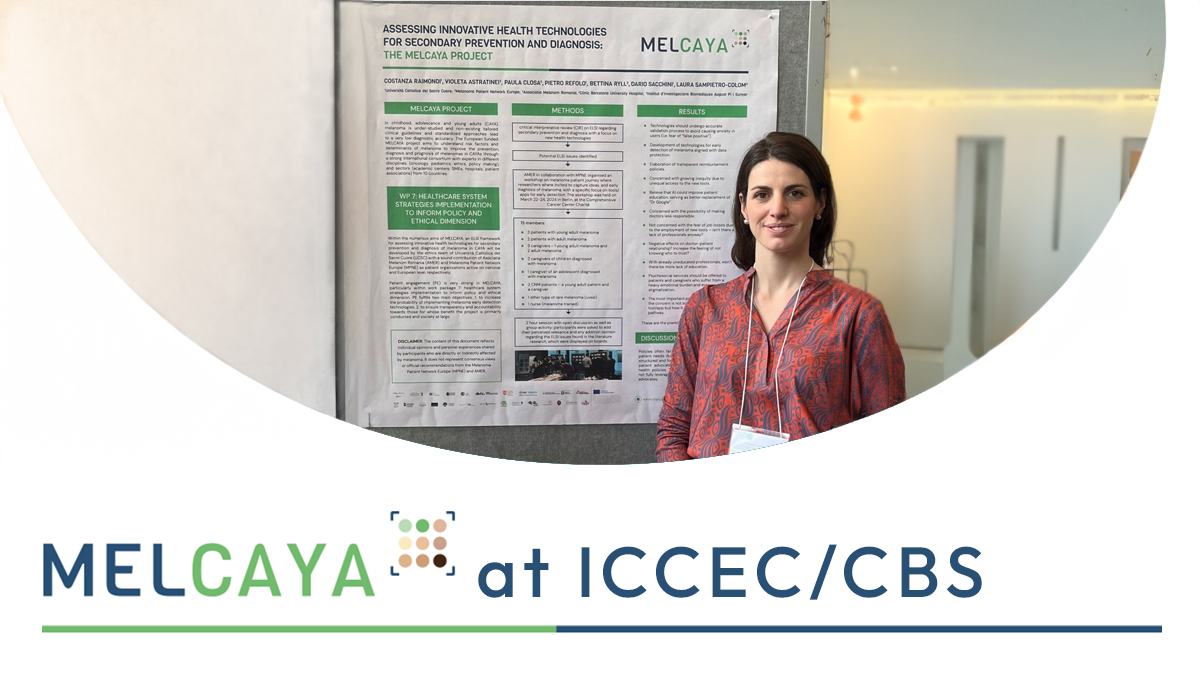
MELCAYA at ICCEC/CBS
The International Conference on Clinical Ethics and Consultation (ICCEC) was held, jointly with the annual meeting of the Canadian Bioethics Society (CBS), on May 29-31, 2024 in Montreal, Canada, and a poster entitled “Assessing innovative health technologies for secondary prevention and diagnosis: the MELCAYA project” was presented there by Costanza Raimondi, who was representing the work of Violeta Astratinei, Paula Closa, Pietro Refolo, Bettina Ryll, Dario Sacchini and Laura Sampietro-Colom.
The topic of this year’s conference, the 18th edition of ICCEC, was Partnering with patients and communities, indeed seemed very fitting to the work that WP7 (Health care system strategies implementation to inform policy and ethical dimension) is carrying on.
Within WP7 there has been a very fruitful collaboration between researchers and the patient association partner, which is Asociatia Melanom Romania (AMeR). Specifically, between AMeR and HCB/FCRB which is investigating the EU countries’ policies aimed at the prevention and early diagnosis of melanoma in children as well as with Università Cattolica del Sacro Cuore (UCSC) which is researching the ELSI issues raised by current policies for the prevention and early diagnosis of CHM, with a specific focus on AI-driven tools and apps designed for early detection.
On March 22-24, 2024, AMeR and Melanoma Patient Network Europe (MPNE) organized a workshop, hosted by the Comprehensive Cancer Centrum Charité in Berlin.
During the workshop, which involved a group of 16 patient advocates, patients, and caregivers from across Europe, a 2-hour focus session was dedicated to a Brainstorming and Group Activity organized by Laura Sampietro-Colom, Head of the Innovation Assessment Unit at Hospital Clinic Barcelona, Prof. Pietro Refolo from Università Cattolica del Sacro Cuore, Rome, and researchers Paula Closa Granados and Costanza Raimondi.
In that session, participants were asked to evaluate both the policies and the ELSI issue raised.
In the poster presented at ICCEC, only the primary results regarding ELSI issues were discussed, specifically regarding the of AI-driven tools and apps for early prevention and diagnosis.
It is evident that policies often fail to align with clinical realities and patient needs, due to a lack of patient input. A more structured and formal framework is needed, in order to improve patient care and healthcare policies.
Presenting at ICCEC was a wonderful opportunity to let MELCAYA be known around the world and to connect with researchers interested in the topic.
Author: Raimondi Constanza (UNICATT)

